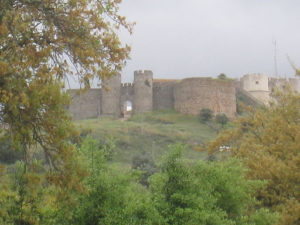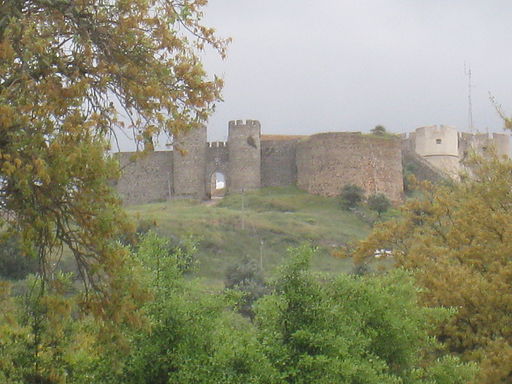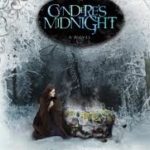The Undefined Unity Of Speculative Fiction
 Artistic or not. In the mold of Gene Wolfe or C. S. Lewis. Time travel or portal fantasy. Christian or general market. Traditionally published or self-published. YA or adult. Space opera or supernatural suspense.
Artistic or not. In the mold of Gene Wolfe or C. S. Lewis. Time travel or portal fantasy. Christian or general market. Traditionally published or self-published. YA or adult. Space opera or supernatural suspense.
On the surface speculative fiction seems fractured into a thousand pieces, which undoubtedly explains the numerous small enclaves of speculative writers and fans that exist in cyberspace. Some readers enjoy dwarfs and orcs and dragons, others hang on the stumbling gait of the undead or the baring of werewolf fangs. Still others clamor for stories set in the imagined wonders of the scientific future or in the future collapse of that society.
 How is it, then, that all these divergent stories–from Princess Academy: Palace of Stone by Shannon Hale, Game of Thrones by George R. R. Martin, the Wingfeather Saga by Andrew Peterson, the Safe Lands series by Jill Williamson, Beckon by Tom Pawlik–end up lumped together in the catch-all category, speculative fiction?
How is it, then, that all these divergent stories–from Princess Academy: Palace of Stone by Shannon Hale, Game of Thrones by George R. R. Martin, the Wingfeather Saga by Andrew Peterson, the Safe Lands series by Jill Williamson, Beckon by Tom Pawlik–end up lumped together in the catch-all category, speculative fiction?
Clearly the stories all have a “what if” component, but as John Otte recently pointed out in his post “A Different Sort of Speculative Fiction,” Biblical fiction is dependent upon the same element. And so is historical fiction, and, it could be argued, all fiction.
Then what unifies speculative fiction. Fantasy has the feel of the ancient, urban fantasy, the edge of the contemporary, and science fiction the projection into the future. Christian speculative fiction suggests a Christian worldview or shows a symbolic representation of some Christian truth or the overt Christian gospel.
Fantasy employs quests and medieval tapestry, other worlds and other creatures, and of course magic!
Science fiction employs space journeys and futuristic tapestry, other worlds and other creatures, and of course science!
Supernatural suspense or horror employs the journey of life and contemporary tapestry, this world and other creatures, and of course the supernatural!
Am I wrong, or are the commonalities showing?
First is the word “other.” Speculative fiction employs lots of “other” whether that refers to places or people or both. In short, speculative fiction recognizes the existence of something beyond what we can see and know by our powers of observation.
 Even science fiction. While extrapolating from present observation, sci fi must still turn the known into imaginative projections which inevitably lead to the unknown other–replicated persons, extraterrestrial creatures, sentient artificial intelligences, or perhaps some other “other” which no one has thought of yet.
Even science fiction. While extrapolating from present observation, sci fi must still turn the known into imaginative projections which inevitably lead to the unknown other–replicated persons, extraterrestrial creatures, sentient artificial intelligences, or perhaps some other “other” which no one has thought of yet.
Similarly, each contains a source of power extending beyond what we know and experience as “normal” today. Fantasy makes no pretense–the power is magic and the source often unknown or unexplained. Science fiction makes no pretense either–the power is science and the natural extension of the way technology is unfolding, including the ethical and moral questions which may arise along the way. And yes, supernatural suspense or horror makes no pretense either–the power is from the supernatural beings that people the world, unseen for the most part, by the majority of humans, but wielding monumental influence.
The real unifying force, then, seems to be the understanding that what we see and know in the physical world isn’t all there is. Our rational faculties haven’t uncovered (or haven’t yet uncovered) all there is, and some of what we can’t determine rationally is more powerful, more influential, often more dangerous, than we suspect.
As I see it, this element is the very thing that makes speculative fiction more true than its pedestrian cousins–even that written outside a Christian worldview. In many ways, speculative fiction is the proof that Romans 1 is true when it says
For the wrath of God is revealed from heaven against all ungodliness and unrighteousness of men who suppress the truth in unrighteousness, because that which is known about God is evident within them; for God made it evident to them. For since the creation of the world His invisible attributes, His eternal power and divine nature, have been clearly seen, being understood through what has been made, so that they are without excuse. For even though they knew God, they did not honor Him as God or give thanks, but they became futile in their speculations, and their foolish heart was darkened. (Rom 1:18-21)
Speculative writers are simply acknowledging God or imagining the world in such a way as to explain the evidences of God they cannot ignore. Truthfully in our world there are supernatural beings with power we don’t have, and the direction we take today will influence our future destiny.
In other words, speculative fiction is the most truthful fiction of all–even that which seems staunchly opposed to God and His good news.










































Another great article. I’d like to add a message from my fantasy writing if others don’t mind. For I write of a world that lost light to the last town, overcome by dark reach, until…
For man fought against man, letting dark reach teach them, turning of deliberate stance against light. Man turned from good to evil, embraced bitter for that of sweet, exchanged dark for light. Man even took away the rights of those who stood for what is right. Who can know it?
That’s my message which is drilled into that last village, standing for light. Stand for light or be overcome by dark reach. And they do. Cre – lo – Way appears at the end times to deliver those lost in darkness setting up battle after battle between those who stand for light against all manner of dark reach. Will you stand with us or let dark reach overcome, pulling you down without hope? Who knows?
Hey, Terry, if you’d like people to know about your book, the best way to do that would be to fill out a form to submit it to the library. We really don’t want our comment section to read like spam, though of course you can talk about your writing if it applies. Hope that helps give you a guide.
Becky
Speculative fiction–speculating about outer space, dragons and magic! I’ve been studying the mystery genre, because for this month’s Camp Nanowrimo I’m trying to write a spec-fic mystery, sort of like Dresden, but in my own universe. The mystery genre is more like a puzzle, although sometimes writers do delve into deep subjects along the way. Less “nature of the universe” and more “the nature of man and what gives him that bent toward evil”.
All murder mysteries eventually run into that question–why do we kill each other at all? Is there any way to fix it? The author’s worldview always comes through loud and clear as their characters struggle for an answer.
I like the comparison of genres, Kessie. I’ve read mystery writers who say it is the perfect genre because of what it reveals about Humankind’s heart. I can see that, except I think it’s too easy to think that we have to solve our problems and that we are capable.
I love mystery and think I’ll always want to use a little mystery in my writing no matter what the genre (just like using a little romance! 😉 )
Becky
Yes, an awesome article. I agree. I think the common characteristic of speculative fiction is the vision of faith, looking beyond actuality to see what is more real than present experience.
That element of faith and wonder is more important than the tangled genre and sub-genre classifications. Much of the difference between the genres is setting.
The thing that dawned on me as I put this together, Bainespal, is that the general market fiction has the same component, though some are giving an obvious nod to what we’d consider forces opposed to God. Nevertheless, there’s that recognition that we aren’t all there is. So yes, some of the difference is setting, but some is a recognition of the other without distinguishing light and dark or even recognizing it and choosing the dark.
In other words, because there is this commonality, I’m not saying all speculative fiction is “good.” Avatar is my favorite example. Clearly that movie embraced the other on many levels. I’d even say it passed the “faith and wonder” test, but I wouldn’t say it honored God as God.
Becky
I like that as an explanation for speculative fiction…they all acknowledge that there’s so much more to life than we normally see
Galadriel, the thing I like about that realization is that it gives Christians a place to start talking with other readers of speculative fiction. They’re acknowledging the same thing we know to be true. It makes us and what we write more alike than what they, or perhaps we, have thought.
Becky